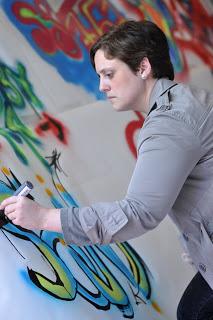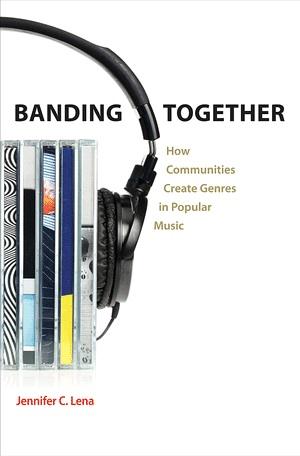
Jennifer C. Lena is an Assistant Professor of Sociology at Barnard College, Columbia University. She has a BA from Colgate University (Sociology/Anthropology, English, 1996) and a PhD from Columbia University (Sociology, 2003). She is the author of Banding Together: How Communities Create Genres in Popular Music (Princeton UP 2003), and dozens of articles on music, culture, art, and race. She co-commissioned "Hilos," a contemporary classical composition, recorded by ALIAS and composer Gabriela Lena Frank, which was nominated for a 2011 Grammy award. She blogs at What Is The What, and occasionally at Princeton University Press and OrgTheory, among others. A full list of her professional activities can be found on her website.
Jennifer on...
Finding Her VoiceExperience. Feedback. Time. Encouragement. The advice to write using my speaking voice. Reading, reading, reading, and lots more reading.
Satisfaction
Good writers share their work and revise it in light of that feedback. This is how I learned my general weaknesses as a writer, and the specific flaws of particular pieces. It feels great when I've edited these flaws out of a piece. Sometimes, this is a matter of "outsmarting" your reviewers--teaching them to like or accept something they wouldn't otherwise--and sometimes it is a matter of finding a new balance between your intentions and their needs. In either event, the experience is blissful because it feels like a clear line of communication--where what you write is what they read, and this is satisfying
KnowingIt happened in fourth grade, then in seventh, then in ninth, then the year that bridged high school and college, and then again and finally my second year as a tenure-track professor. In other words, for most of my life I was in the process of deciding to be a writer, or talking myself out of it. There are many books that inspired me to think, but the specific work that inspired me to write--that is, the work that felt like something that I could write, using my own experience and expertise, is an academic journal article by John Levi Martin entitled, "What do animals do all day?: The division of labor, class bodies, and totemic thinking in the popular imagination." Poetics 27: 195-231 (2000). My reading list includes Madeline L'Engle, Walt Whitman, E E Cummings, Allen Ginsberg, Italo Calvino, Isabel Allende, David Foster Wallace, Umberto Eco, and others. But the only writer I thought I could be was Martin. And I'm still not there.
The First Time I can remember several very positive and very negative reactions to my work, and each were imbued with significance because the person reacting was both generally viewed with esteem and I personally held them in high regard. The negative feedback-- which I now realize was partly an ad hominem attack on my character-- made me frustrated and mad. The positive feedback made me feel confused and embarrassed. In both cases, my emotional responses provided me with nothing useful for my writing--just stuff that was useful for the development of my character.
When I get written feedback-- although I sometimes do this with oral feedback as well-- I allow some time for my response to fade, and then I take precise but unemotional notes on the content of the feedback. I basically re-write it leaving out anything that will trigger my feelings. I allow a little more time to lapse and then I use my notes in revising the piece. That's enough of a firewall between my emotional response to the reviewer's tone, sympathies, inaccuracies, and etc. so that I can sit down and take what's useful from their feedback.
And I have built a tolerance for both positive and negative feedback that I couldn't have imagined 10 or even 5 years ago. I would chalk that up to my growth as a person as much as my growth as a writer, but it anyway makes life easier.
Advice There's a good part of learning that can only happen through doing and so advice is just useless. I guess I wish someone had encouraged me to experiment more. I should have been pitching ideas all the time, to all sorts of people--trying earlier and more often to figure out how stories are best told, and which stories are best. I should have been trying to write in different idioms--I was stuck writing short, creative fiction and poetry, and I tried music criticism or non-fiction only much later. I wish I had known and spent time with more professional writers--there's a lot of important knowledge that isn't written down and even if it were, couldn't be illustrated as clearly or learned as well as when it is conveyed in person.
And I guess every writer wishes they had been told early on that writing is primarily defined by failure, not success. Good writers fail more than they succeed, which makes them exactly like writers that are bad.
What I'd add at the end for prospective writers: maybe you'll get lucky and you'll only have to write when the spirit is in you, the lighting is right, and the coffee is delicious. It's more likely that your experience as a writer will be just like every other goddamn job, which is to say that it will be work. It will be repetitive, and most days won't be glamorous, and no one will compliment you, and most people won't even care how you spent your day. If this is unacceptable to you then don't become a writer. Most days, writing compares favorably with engine repair: you're looking at all the moving parts, testing out which of them is broken, replacing the broken bits, and planning to come back tomorrow to see if you managed to get the thing running again. Despite its mind-numbingly boring bits, and the constant state of imminent rejection, it is extremely important that we all find a way to communicate with one another and advance human understanding, and writing is an important way to do these things.


